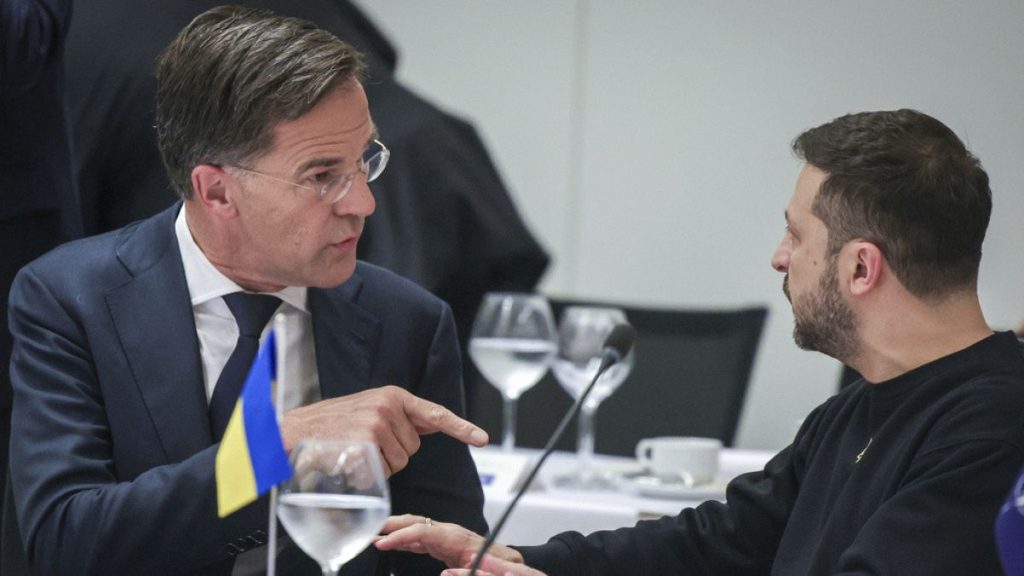The ongoing conflict between Russia and Ukraine has brought into sharp focus the delicate balance of international alliances and the difficult decisions faced by world leaders. Ukrainian President Volodymyr Zelenskyy, facing the relentless pressure of war within his own borders, has consistently pressed allies for increased military support. This pressure has created friction, particularly with German Chancellor Olaf Scholz, over the provision of long-range Taurus cruise missiles. NATO Secretary-General Mark Rutte has entered this fray, urging Zelenskyy to cease his criticism of Scholz, characterizing it as unfair. This complex dynamic underscores the multifaceted challenges facing the NATO alliance as it attempts to navigate the escalating conflict and maintain unity in the face of Russian aggression.
The crux of the disagreement lies in Germany’s hesitancy to supply Taurus missiles, a hesitation rooted in the fear of escalating the conflict with Russia. While Germany has been a steadfast supporter of Ukraine, providing substantial financial and military aid second only to the United States, the issue of the Taurus missiles represents a significant point of contention. Other Western allies, such as France, the UK, and the US, have already provided Ukraine with long-range weaponry, increasing pressure on Germany to follow suit. Zelenskyy’s public criticism of Scholz, including his condemnation of a phone call between Scholz and Russian President Vladimir Putin, further exacerbates the tension. Rutte’s intervention, however, highlights a growing concern within NATO about maintaining a united front against Russia.
Rutte’s defense of Scholz and his call for Zelenskyy to temper his criticisms underscores the delicate balancing act required within the NATO alliance. While expressing his personal willingness to supply the missiles to Ukraine without restrictions, Rutte acknowledges the complexities of the situation and the varying perspectives of member states. He emphasizes that the decision of what military aid to provide ultimately rests with individual nations. This nuanced stance underscores the sensitivity of the issue and the potential for discord within the alliance if Zelenskyy’s public pressure campaign continues.
The timing of this disagreement coincides with a period of significant political upheaval in Germany. Scholz’s coalition government recently collapsed, followed by a lost vote of confidence, further weakening his position. His plummeting popularity ratings and the impending snap election on February 23rd add another layer of complexity to the situation. The opposition party, led by Friedrich Merz, has already pledged to supply the Taurus missiles if elected, adding further pressure on Scholz and highlighting the political ramifications of this contentious issue. This domestic political instability further complicates Germany’s response to Ukraine’s requests and adds another dimension to the pressure faced by Scholz.
Beyond the immediate concern of the Taurus missiles, Rutte’s comments also touch on the broader issue of defense spending within NATO. He anticipates renewed pressure from the incoming US administration under President-elect Donald Trump to increase defense budgets. This anticipated pressure reflects a longstanding concern within the alliance regarding the uneven distribution of defense spending, with the US traditionally bearing a disproportionate share of the burden. While European members are projected to collectively reach the 2% of GDP spending target this year, some nations still fall short, and Trump’s reported desire to raise the target to 5% could create further strain within the alliance.
In summary, the debate over the Taurus missiles exemplifies the intricate web of political, military, and economic considerations that shape the response to the ongoing conflict in Ukraine. Zelenskyy’s impassioned pleas for greater military assistance, particularly from Germany, are juxtaposed against Scholz’s cautious approach, motivated by concerns about escalating the conflict with Russia. Rutte’s intervention highlights the importance of maintaining unity within NATO while acknowledging the differing perspectives of member states. The upcoming German elections and the anticipated pressure from the incoming US administration add further layers of complexity to an already fraught situation. This complex interplay of factors underscores the challenging decisions facing world leaders as they navigate the delicate balance between supporting Ukraine and mitigating the risk of a wider conflict.

